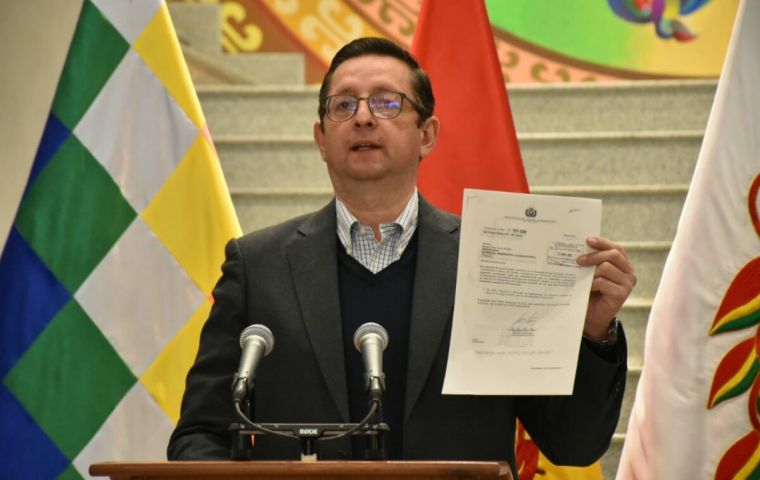MercoPress. South Atlantic News Agency
Privatization policy in Bolivia divides the cabinet and triggers several ministerial resignations
 Óscar Ortiz stepped down from the economy portfolio, citing “deep differences” and pressure from people close to interim President Jeanine Añez
Óscar Ortiz stepped down from the economy portfolio, citing “deep differences” and pressure from people close to interim President Jeanine Añez Internal splits in Bolivia’s interim government led to the departure of the country’s economy minister and two other cabinet ministers Monday, stoking uncertainty about the Andean country’s economic recovery from the coronavirus pandemic.
Óscar Ortiz stepped down from the economy portfolio, citing “deep differences” and pressure from people close to interim President Jeanine Añez, a conservative former Senator who took over in a power vacuum after fraught elections last year.
Bolivia is heading toward a re-run of that vote on Oct. 18, which will set the political direction of the gas and lithium-rich country for the years ahead. Anez recently withdrew as a candidate after falling far behind in the polls.
The landlocked nation tumbled into political crisis last year after allegations of electoral fraud sparked widespread protests and led to the resignation of long-term leader Evo Morales. The pandemic has hammered the economy.
“I will always put principles first over personal interest. No role, no matter how important, justifies going against the principles and ethics that have always guided my actions,” Ortiz told reporters on Monday.
Bolivia’s ministers of labor and development have also quit, forcing Añez to appoint replacements. The mining minister was reported to have quit before backtracking on his decision.
Reports said the issue was that some ministers refused to accept the government’s plan to privatize power company ELFEC, which was nationalized by the government of former socialist leader Morales.
José María Cabrera was also recently removed from the post of State Attorney General for opposing the privatization.
“I want to finish my administration by leaving the road paved so that the government that comes, regardless of political color, can dedicate itself to creating jobs,” Añez said.




Top Comments
Disclaimer & comment rulesCommenting for this story is now closed.
If you have a Facebook account, become a fan and comment on our Facebook Page!